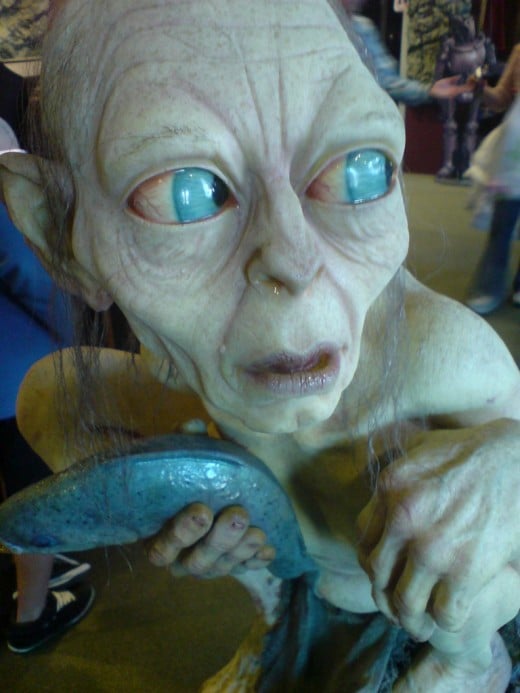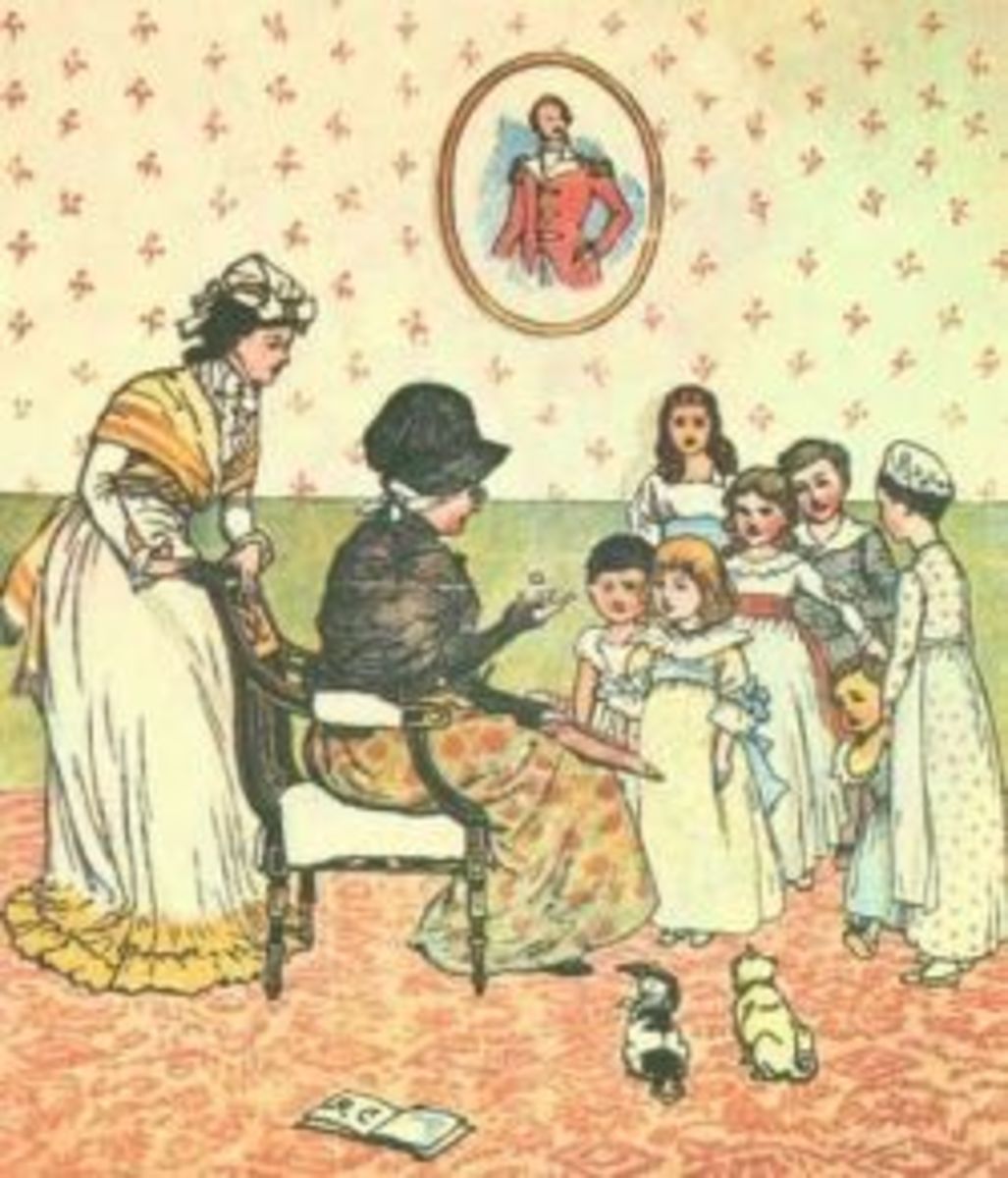How to Write a Fantasy Story

Fantasy is more than just magical creatures prancing around in a magical forest. It is a reflection of personal and social evolution. Drawing on myths and folklore the genre allows us to see the world around us in a new light.
Some of the most successful films in Hollywood have been fantasy films. A modern incarnation of the mythological genre, fantasy normally comes to the fore when a lot of boredom settles into life and when realistic drama floods the pipeline. There’s only that much realism the human mind can bare and while realism is great in itself, what fantasy offers is the leap into a much-needed fantastical realm.
Whether writing a fantasy film screenplay or a fantasy novel or coming up with an outline for a fantasy graphic novel; the fantasy story shares some common elements.
In many ways fantasy is the opposite of horror. It shows the magic in the mundane world. Finding the unexplored possibility in each person and the world itself. If each story genre has its own unique outlook on life, most horror stories have a pessimistic outlook. In a horror story, we generally see the devolution of the main character. Whereas most fantasy stories are generally optimistic. (This is a very general rule and every once in a while a story will transcend or twist this rule successfully).
The main thing to keep in mind while writing a fantasy story is that fantasy is allegorical. Everything stands for something else. Fantasy celebrates imagination and the best fantasy stories show people how to live well. The best fantasy stories achieve this without being preachy or dogmatic. Gandalf talking to the hobbits is far better than an instructional manual handed down to you.
Broadly speaking, there are two types of fantasy stories: The utopian fantasy story and the dystopian fantasy story.In the utopian fantasy story, we see a vision of a perfect life, a fantastical dream. The dystopian fantasy story, on the other hand, shows a vision of what life would be like if some negative values would become extreme. It shows us what it would be like to live in a fantastical nightmare. (note: this could hold true for sci-fi stories as well)
At the helm of various fantasy story structures is Joseph Campbell’s Hero’s Journey as described in his book ‘The Hero with a Thousand Faces.’ It is perfectly suited for a fantasy story. Campbell closely studied mythological tales from cultures around the world and noted certain common elements in all of them. He then came up with the famed ‘monomyth’ referred to as the ‘Hero’s Journey.’
A good fantasy story shares common story elements that all good stories have. In addition to this, there are some elements that are unique to the fantasy genre. Be sure to keep the following in mind when writing an original fantasy Story.
The Premise.
This is your big idea! What you are trying to say in a nutshell. You are taking a stand here. All fantasy is allegorical and so your fantasy story should stand for something else. Remember this rule: If it’s only about what it’s about, it’s not about enough. You need to figure out, what your larger story stands for. Now sometimes this may come to you at the beginning of writing the story, but in all likelihood, you will stumble upon it as you discover your story.
Everything springs from the premise; use it as a map to make all story decisions.
The Hero
It’s not necessary that the Hero of your fantasy story is a prince or princess or the ‘chosen one.’ By going to the fantasy world an ordinary person opens up to a mystical experience. The Hero needs to break convention and she needs to open her mind and learn to see possibilities.
Let the premise guide you and help you in coming up with characteristics for the Hero that will best suit your story.
The Fantasy World.
What is this world? A fantasy dream or a fantasy nightmare?
You can contrast the fantasy world with the real world. There are often two worlds: the mundane and the fantastical. For example: ‘Alice in wonderland.’ Above and below the rabbit hole. This shows us the contrast.
If the fantasy world is positive, there has to be a negative in it somewhere, which will cause the hero to grow before he returns to the real world. If the fantasy world is negative then have a positive within this dark world that the hero can learn from.
The fantasy world could be set in a fantastical space or fantastical time, or, most often, both. Define the culture of the world and define the unique set of values of the fantastical world and how it compares to the real world that we live in today. Find that single metaphor that stands for the fantasy world. For example: In the movie ‘Honey I Shrunk the Kids’ the backyard is a metaphor for the jungle.
Often times, the fantasy world can be further broken down. These are smaller arenas in the larger world. For example: The different areas in ‘Charlie and the Chocolate Factory.’
Set the rules of the world and don’t break them. Define them and stick to them. That is the only way to make the world come alive. If you do break the logic, explain it creatively.
The fantasy world will often have what we could call: The Passage Way. This is the rabbit hole. Not all have them but many do. Besides the literal use of the Passage way it’s a signal to the audience that the rules will now change. Neo is in the matrix and now different rules apply. We are going to see the world in a new perspective and we are going to see a new set of rules so fasten your imaginary seatbelts.
The Opponent
In many fantasy stories, the main opponent is usually a father figure who is authoritarian. He is the ‘King’ who is incapable of positive emotions such as love or empathy and is often someone who has forgotten how to have fun. This could be a person or an entity. For example: In ‘Big’ it’s the corporate executive. In ‘E.T.: The Extra-Terrestrial’ it’s the military and the scientific community.
Occasionally, the main opponent is a mother figure, For example: The Queen in ‘Alice in Wonderland’ and the wicked witch in ‘The Wizard of Oz.’ In a movie like ‘Honey I Shrunk the Kids’ instead of one main opponent, there are a series of opponents or obstacles. This is true for stories that follow the mythical journey structure outlined by Joseph Campbell.
Generally, one should distinguish between the main opponent and other opponents that form the forces of antagonism. All of this forms the conflict and no story can be complete without conflict but a good fantasy story should have a strong, singular, main opponent who is directly in the Hero’s path.
The Final Battle
Every fantasy story has an epic final battle for a climax. This is your Hero’s final test. Save the best for last. Usually what the hero has learned through her journey is used here to overcome the main opponent in the final battle. There is an epiphany moment here for the fantasy hero.
Towards the end, there is a significant change in the Hero. Again, this is just a general guideline and not a rule set in stone. In some fantasy stories, the Hero remains unchanged and it’s the characters around him who go through a significant change, thanks to the Hero. However this happens, there must be a significant change at the end of your story.
Having covered some of the common elements of a fantasy story,following are certain pitfalls and common mistakes that one should avoid while writing a fantasy story.
The fantasy world that you create has no symbolic qualities.
Avoid creating a fantastical world that has no connection with our world. It has to have a connection to where we live now. For example: Though Tolkien himself denied it, many interpretations see the Ring in ‘The Lord of the Rings’ as representative of the atomic bomb.
There’s no story after the novelty of the Fantasy world dies.
A deep conflict is a must; extremely crucial to keep a story going, no matter how fantastical your world is. Keep the conflict coming and keep raising the stakes for your Hero.
So no matter what kind of fantasy story you choose to write, remember dare to go as far as your mind will take you and then infuse your fantastical world with meaning that resonates with us all today. Build magical moments. This is what we remember most.
You know the rules and are equipped with all the tools, now it’s time you brought your unique perspective to light through your next fantasy story.
- How to Get Great Creative Ideas
Ever wondered how to get great ideas? If you are a writer or and artist or an entrepreneur, this article shows you a process to fire up your brain and come up with new original ideas One might think that for the ‘gifted’ few, ideas just fall into the - How to Describe a Fantasy Creature
Do you want a formidable beast for your fantasy character to battle? Do you want a legendary monster that strikes fear into the hearts of mortal men? Do you know how to get started? Well you do now... - Why Create & Build a Fantasy World?
Fantasy world building can be an inexpensive, fun pastime that stimulates your imagination. Writers use world building as a tool for developing the background to a well rounded story.



